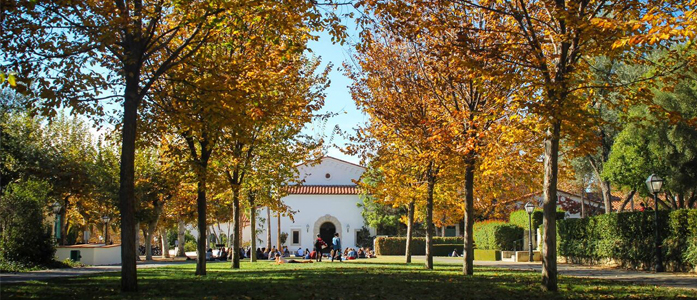Alexandra Rivasplata ’22
Think back to when you were a first-year, exiting yet another CORE lecture at Garrison Theatre. You walk past Denison Library, the Student Union, the Motley Coffeehouse, Seal Court, Vita Nova, the Margaret Fowler Garden, through your resident hall’s browsing room, recreation room and living room. Sighing out of frustration, you wonder: why there are no spaces on Scripps to study?!
This is the premise of a scathing op-ed entitled, “Scripps’ Priorities are Sexist,” published by The Student Life (TSL) newspaper on Oct. 30.
The author, Margot Rosenblatt ’23, argues in her piece that: “Beyond just the theoretical, Scripps (literally) structurally does not prioritize academics. Other actions and inactions by the Scripps administration makes me wonder what they think Scrippsies are doing in their time outside of class. Unlike some of those at the other 5Cs, almost all of Scripps’ classrooms are locked during the night.”
Conflating the prioritization of academics with keeping classrooms open for studying does not make much sense. At Scripps, our less public study spaces are mostly facilitated in our residential halls. Most of our residential buildings were built with amenities such as Browsing Rooms, Living Rooms and Recreation Rooms. Rather than emphasizing a larger communal space like Kravis Center (the Cube) or classrooms, Scripps places an importance on both studying and on being comfortable while doing it. Furthermore, having all these spaces in each dorm is unheard of in most other 5Cs residential buildings. Additionally, asking to keep all Scripps classrooms open for longer hours may make it difficult for our maintenance workers to do their jobs.
Moreover, Scripps is the only college of the 5Cs that has its own library. The Ella Strong Denison Library (Denison) embodies our prioritization for research, studying, and higher education.
However, I do agree that public studying spaces such as Denison and the Student Union can be better marketed to Scripps students. I also understand the appeal of studying in classrooms; this is why the administration opened up Humanities 201 and 204 for the purpose of providing students with a public classroom space to study.
Rosenblatt begins her article by stating that Scripps prioritizes its campus over its academics.
I disagree. The beauty or layout of a campus does not determine the intelligence of its students. As Rosenblatt states in her piece, it is a sexist mindset to view an attractive person as less intelligent simply because of the way they look. Critiquing Scripps as an institution that does not value learning or studying based on the fact that it is the most beautiful campus of the 5Cs is a sexist, shallow, and poorly founded critique. Furthermore, our ratio of academic buildings to extra resource buildings (residential halls and the field house) does not mean that Scripps does not prioritize academics. Rather, as a residential college, it means that Scripps simply wants students to be able to participate comfortably in residential housing, as opposed to living in off-campus housing. We have not yet experienced a crisis involving academic buildings or the class ratio within them. Moreover, the number of buildings a college has is not indicative of the quality of its classes or the intelligence of its students. To argue that ‘more is better’ is to directly contradict the very reason that many students decide to attend small liberal arts colleges.
Additionally, Rosenblatt argues that Scripps’ very mission statement is sexist. In her piece, Rosenblatt states that: “The term “active participation” caught my eye. It seems to imply the low expectation of showing up to class and talking once in a while.” This is a matter of semantics. Active participation is a goal that all students across the consortium strive for and quite literally means “active.” For example, students who receive a “participation” grade in their classes are quite literally being judged on how actively they participate in their class. To think otherwise is to disregard the definition of the term “active participation.”
Rosenblatt also states that: “Students from other schools don’t think we’re dumb; they think that we don’t prioritize academics as much as they do and are therefore less of a force to be reckoned with in the classroom.” While I believe that there is a bias against Scripps students, it is not because we don’t value academics as much as the other 5C students. It is, quite simply, a result of misogynistic beliefs often perpetuated by students at other colleges. When these beliefs are perpetuated by Scripps students, it misdirects the root of the problem to superficially portray Scripps negatively.
Rosenblatt concludes her piece saying that it is essential that “[w]e should build more academic buildings and study centers. We should unlock our classrooms…” Though I agree that many Scripps students would value more study hubs, the fact we lack these is by no means indicative of a sexist administration that doesn’t expect excellence from its students. Scripps students are just as capable as any student at the Claremont Colleges; as part of a consortium, we are expected to share our classes, resources, and viewpoints every day. We are held to the same standards at Scripps as any other 5C student. We are “non-stop” and our school has always supported us in regards to academic capability. If you don’t buy it simply because some non-Scripps students don’t, consider how misogyny works. Sometimes, it’s not on Scripps. It’s on you.
Relevant Source: Read Margot Rosenblatt’s work https://tsl.news/opinion-scripps-priorities-sexist/
Image Credit: Scripps College



